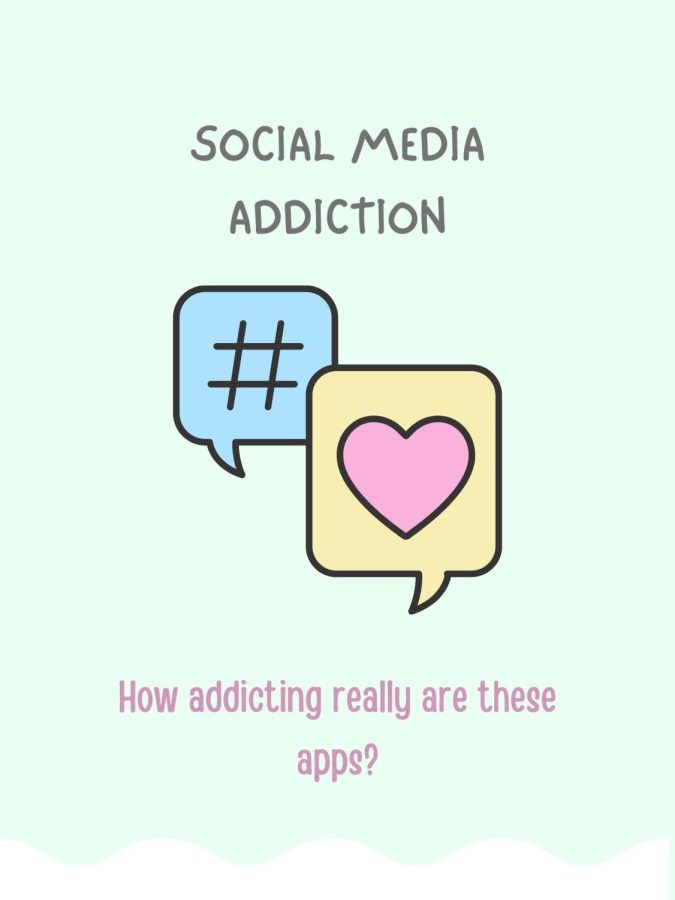Social Media Addiction
March 21, 2022
Social media is used in many of our daily lives. According to a survey conducted by Pew Research, 7 in 10 Americans use social media on a daily basis. Social media platforms, such as TikTok and Instagram, release dopamine in the brain. Social media is perceived as a reward, making it so addictive.
Why can social media be an issue?
When people use social media as a coping mechanism, to relieve stress or get their mind off of something, it becomes a problem. When you use social media too much, you start to ignore the real world around you. People then use social media to escape reality, and dependency increases.
Social Media and Mental Health
The use of social media leads to low self-esteem and negative mental health. Social media shows the highlights of people’s lives and filtered and edited photos. Users compare themselves to others online. They compare an unreachable standard, leading to a decreasingly low mental health. Social media influences unrealistic habits and body images for people, especially young girls.
Overall, social media is okay in moderation. It is a way for people to connect and share moments with each other. When not used to escape reality, social media has many pros.








